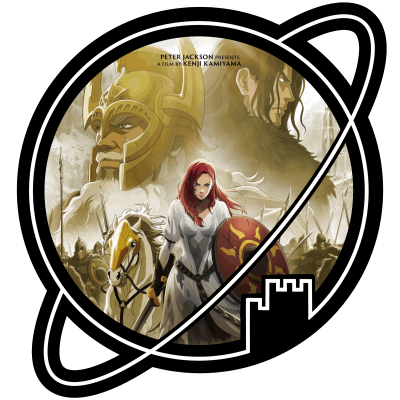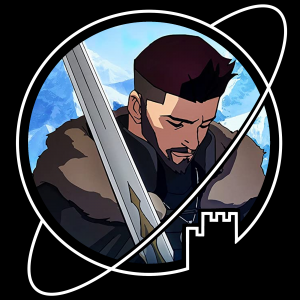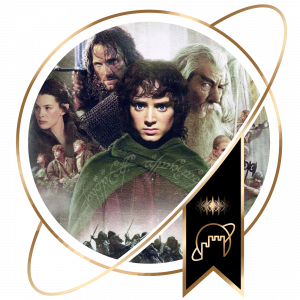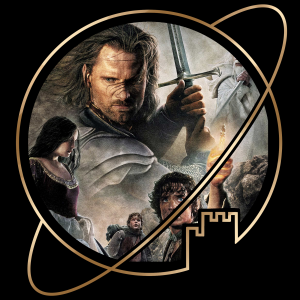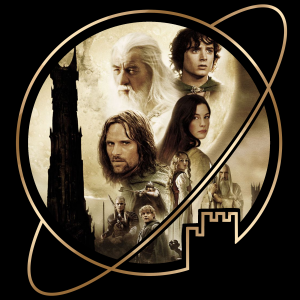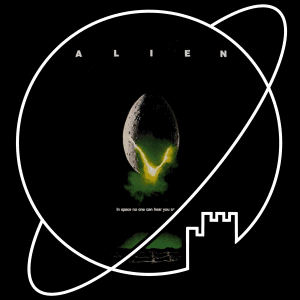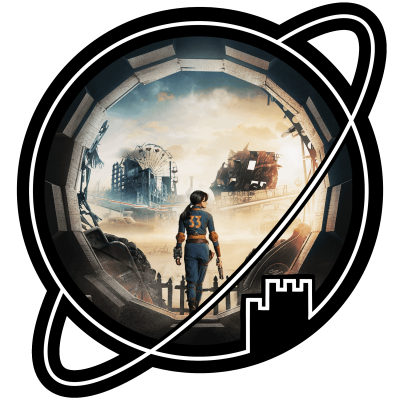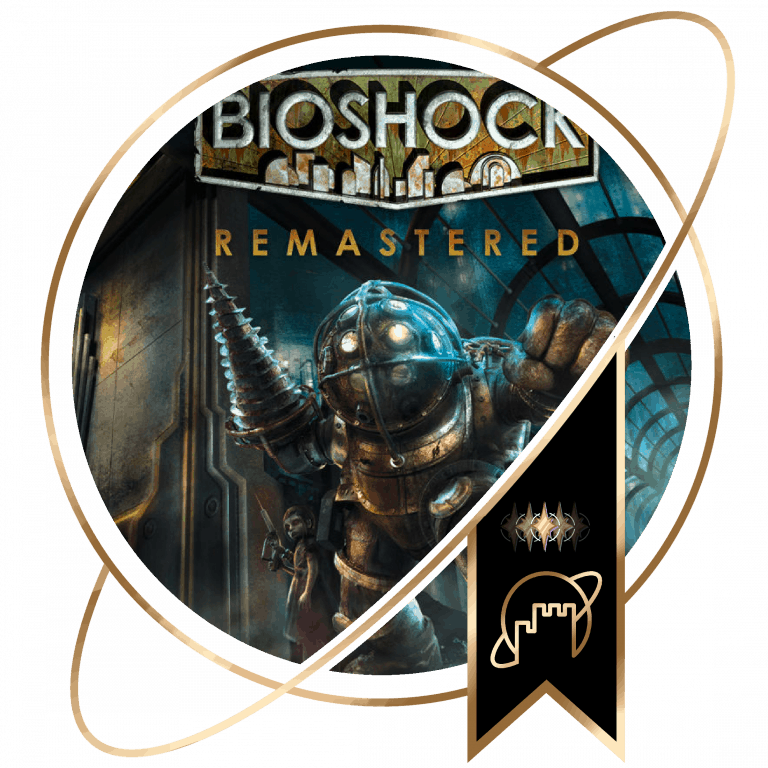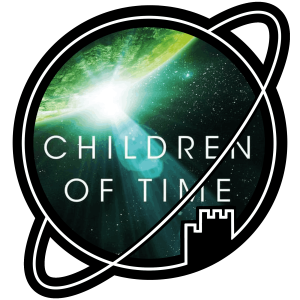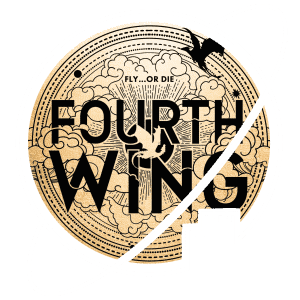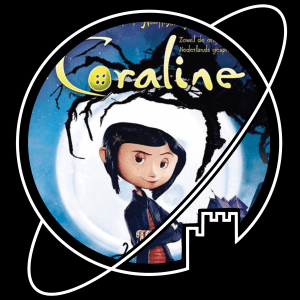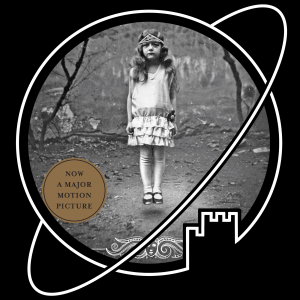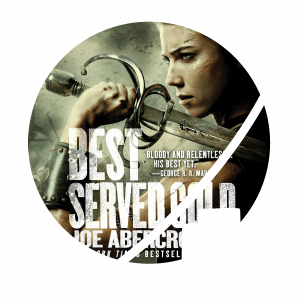Welcome to the Escape Velocity Collection!
We are an opinionated group of friends reviewing all sorts of fantasy and science fiction media. Don’t forget to get to know the curators and visit our curated Collection, where we discuss the stories that never cease to transport us to another world.
Will you escape with us?
LATEST POSTS:
- Movie directed by Kenji Kamiyama
- Based on Appendix A of The Return of the King by J.R.R. Tolkien
- Starring Brian Cox, Gaia Wise, Luke Pasqualino, Miranda Otto, and others
- Released 13 December 2024
- Runtime: 134 minutes

I didn’t really know what to expect going into this movie, and the first ten minutes didn’t give me a lot of confidence. They came in leaning heavily on the ‘Not like the other girls’ trope, and even worse: a villain with a facial scar. Not a good start.
It did get better after that though, and I actually found myself quite enjoying it. The story doesn’t have any major surprises, and you can see several important plot events coming from miles off. This would have been a bigger issue for me if it was a ‘new’ story, but since it is working with the original source material from Tolkien, I was able to cut it some slack and just enjoy it for what it was.
With good music and beautiful visuals, it was enough to keep me awake for the whole movie, even though it ended well after my normal bedtime. You might think that that’s a low bar to set, but I can’t say the same for most franchise adaptations I’ve seen recently!
So overall, I would say I was pleasantly surprised. Except for the use of a scar as a mark of villainy. Come on people, we can surely do better than that!

I am not usually the type of reviewer to go too much into the background of how or why a movie was made or a book was written; after all, the reader or viewer is mostly interested in the end product.
In this case, I picked up the rumour online that The War of the Rohirrim was mostly made because Warner Bros. needed to release a Lord of the Rings-movie to retain the movie rights to the franchise.
Don’t quote me on this, I couldn’t tell you what deal they made with the rights holders. But it would make a certain amount of sense. Because walking out of The War of the Rohirrim, I did scratch my head wondering why this movie was made.
Before I dive into this, I want to say that I enjoyed my night watching this movie – honestly, it was mostly a relief that The War of the Rohirrim was not particularly bad. Lately, it feels like big franchises are squandering their name left and right, and The Lord of the Rings is among them. Against that backdrop, I’ll chalk up any entry that is at least decent as a win.
However, The War of the Rohirrim is neither original in its story nor in its design. It is based on just over two pages in Appendix A of The Return of the King, and mostly follows the traditional story Tolkien set out in broad strokes there.
The adaptation does deviate on a fair few of the sparse details that Tolkien does give, however. While some of the changes were clearly made to accommodate the new female protagonist, I do wonder why others were made. I would have especially appreciated it if they could have included more of the few lines of speech Tolkien gives Helm on those pages.
Moreover, if the creators of The War of the Rohirrim were going to deviate from Tolkien, they might haven taken the opportunity to add a couple of fresh takes and interesting details to flesh out the story and move off the beaten track just a little.
As it stands, it the story is a very generic tale of adventure with more action scenes than character development that probably would have been entirely forgettable if it had not been part of a larger franchise.
Perhaps The War of the Rohirrim’s most subversive moments were also its weakest. The movie does have a serious dose of Tolkien’s gravitas, but the anime style got the better of the creators on at least a few occasions: this movie features a Watcher in the Water eating a Mumak. I know.
That scene is a clear example of one the issues haunting the Lord of the Rings-franchise: all new things need to remind the viewer of Jackson’s trilogy (looking at you, Rings of Power). Another particularly clear example would be Meduseld, the Golden Hall of the kings of Rohan – even though (slight spoiler alert) it burns down halfway through the movie, it looks exactly like the one we see in the Jackson trilogy right from the start. I feel like it might have been a nice nod if it started different and was rebuilt in the style we know, but apparently it had to be recognisable all the way through.
While I love the Jackson trilogy and appreciate that The War of the Rohirrim, despite being an anime, has squarely placed itself in the same universe, I think it is clear that all the heavy lifting was already done by Jackson and Weta Workshop.
As a result, this movie feels a little like a fan fic: a not-like-the-other-girls warrior princess protagonist, and a mostly unoriginal story leaning heavily on the existing imagery established by its predecessors.
To reiterate a previous point: The War of the Rohirrim is not bad and made for an enjoyable night – but it is mostly just a mid adventure movie with a Lord of the Rings-sauce. You decide whether that is worth watching.

If there was something on my list of things that I didn’t expect to ever witness, I’d say it was an anime movie on Helm Hammerhand and his daughter. Even after Peter shared the news with me, the upcoming release of this movie was hard for my brain to internalize. And then, suddenly, it was here!
It’s strange to be a Tolkien fan in these recent years. There is more content than ever, but – as, for example, Rings of Power has eventually proven to me after I failed to finish its second season – it seems to be pretty hard to capture Tolkien’s magic in Middle-Earth adaptations.
As such, I was unwilling to form expectations in regards to The War of the Rohirrim. When it arrived, I had to see it though. That’s how it goes, and everybody knows…(once again many thanks to Leonard Cohen and his ever applicable lyrics).
Since I’ve read all the appendices of The Lord of the Rings as a child, the legend of Helm Hammerhand was one of the stories that really stayed with me, if simply for two very iconic scenes with Helm the legend himself. As such, when I heard of the premise of this movie, I thought it made sense they had chosen this aspect of the lore to focus on.
When I learned the protagonist would be Helm’s daughter (unnamed in the source material), I was intrigued. It seemed a clever way to explore the legend of Helm Hammerhand – as well as the life of a woman in Middle-Earth – without the danger of completely demystifying some of the more magic elements of the original story. Additionaly, telling the story in a frame narrative (with Miranda Otto as Éowyn recounting oral history) really helps to keep this legendary feel intact.
I would say The War of the Rohirrim contains a decent plot, but it’s strongest points are without exception the scenes directly taken from Tolkien’s writings. Everything the writers of this movie have invented to link Tolkien’s scenes together, however, range from common tropes and archetypes at best to mental exercises that require some solid suspension of disbelieve to make much sense at worst.
Tropes and archeypes aren’t bad per se, of course, but in the case of The War of the Rohirrim, I at times felt they undermined the strength of Tolkien’s world – cheap and unnecessary references to The Lord of the Rings-movies were not the way to save this, by the way. Admittedly, I don’t have enough experience with anime to confidently say what choices in the narrative were made to accommodate that format/genre.
All in all – apart from some eye-rolling moments I joyfully shared with Robin – I will say I’m glad The War of the Rohirrim exists. It was thrilling to hear Rohan’s iconic soundtrack again, the animation was pleasant to look at and the voice-actors did a great job in bringing the characters to life. Also, as an inhabitant of the Netherlands, I could appreciate Lief was really ‘lief’. Sometimes, it’s the little things in life.
Tagged:
See also:
- Novel written by Jeff Vandermeer
- Published in February 2014
- Part 1 of the Southern Reach Trilogy


Listened to the audiobook with Carolyn McCormick. I feel she was perhaps part of why I didn’t like this book at all; quite often she didn’t really get the stresses right in her sentences, which didn’t work that well for the type of book Annihilation is.
I had a feeling I wasn’t going to like Annihilation, but after it was ceaselessly recommended to me by the audiobook app for years, I eventually caved.
I regret that lack of spine.
Annihilation is weird and surreal. Vandermeer leans into that: he doesn’t do a whole lot of worldbuilding, but just drops you straight into the action, leaving pretty much every aspect of the world mysterious.
That could be an exciting way to start a novel, but the problem is that Annihilation feels like an empty book. Borrowing a metaphor from George R.R. Martin, Annihilation very much feels like a heap of ice on a raft: from a distance it looks like an iceberg with a tonne of ice below the surface, but actually there is nothing there.
The mysteries keep building, but they never get resolved. To be fair, I never got the feeling that Vandermeer intended to resolve his mysteries. But that meant I was not the least bit invested in them. It felt like anything could happen at any time, and there were no rules and logic to the world. As a result, I just checked out of the story.
I don’t think that Vandermeer doesn’t have potential. For a book in which so little actually happens, Annihilation is nicely paced. I liked the flashback structure building up the protagonist’s character and some of the world. I liked some of the more minimalist choices Vandermeer made (for example, his decision not to name any characters). But despite all that, I felt like I just didn’t get what was supposed to make Annihilation good.
I usually write my review before going online and seeing what others think about a book. Indeed there are absolutely lyrical reviews of Annihilation online, people who read through the book crying in a single sitting.
I admit I raised an eyebrow at that, but I do understand that that is what Vandermeer was probably trying to achieve. I feel that Annihilation relies heavily on atmosphere and emotion to carry the reader through long passages of what is essentially really simple things happening.
I, however, never got into the atmosphere or emotion because of Vandermeer’s pretentious style. I am probably being a bit harsh here, but I sometimes felt like Annihilation was written by 14-year-old with a thesaurus next to his keyboard. There were whole passages that were probably meant to evoke emotions and elevate the story to a literary level, but felt more like a meaningless soup of big words strung together to me.
As a result, there wasn’t really a lot for me to take away from this book. Unfortunately, to me, the best thing about Annihiliation is that it doesn’t last very long.
The ending of this book is pretty open, but I won’t be spending my time on the next instalments in the Southern Reach-trilogy. Perhaps I’ll read a couple of summaries online to see how the mysteries wind up. Maybe I’ll watch the movie adaptation to see if it succeeds at building atmosphere any better than the book.
In conclusion, I think Annihilation is going to be pretty divisive, but there is a relatively simple test: read a couple of pages, and if the prose is to your liking, you might be sucked in and enjoy the book. If you get annoyed by the unnecessary use of sophisticated synonyms… you’d better try something else instead.
Tagged:
See also:
- TV show developed by Graham Wagner Geneva Robertson-Dworet for Amazon Prime
- Released in 2024
- Starring Ella Purnell, Aaron Moten, Kyle MacLachlan, Moisés Arias, Xelia Mendes-Jones and Walton Goggins
- 1 season of 8 episodes (as of December 2024)

Like most video game nerds, I’ve been anticipating the release of Amazon prime’s Fallout series for a while. Netflix is currently developing a movie based on Bioshock, one of my favourite games of all time. Like many, I’ve been worried they’d ruin my precious, but watching Fallout made me worry a little less.
Of course the Bioshock movie will be developed by other people, but Fallout made me realise that a TV show based on a stylised, quirky game can work. We’ve seen that video game adaptations can be good thanks to The Last of Us, but The Last of Us is a pretty “realistic” story. It doesn’t take much suspension of disbelief. Fallout, however, is far from a realistic game.
I’ve played a bit of Fallout (Fallout 3? New Vegas? I really don’t recall) in the past, but I never got very far. The mechanics of Bethesda games are too clunky for me (and I’ll still happily play Bioshock to this day so that’s saying something – but enough about Bioshock). I was going into the TV show mostly blind, with the exception of having some general background knowledge that one learns from the tutorial of the game. I therefore won’t be able to judge how well they did at translating the game to the small screen. What I can do is give my perspective as someone who is relatively unfamiliar with the source material.
Overall, I really enjoyed this series. I though Lucy Maclean was a really fun main character. The humour of Fallout is quite whimsical and quirky, but it never gets tiring. They manage to capture the vibe really well. The other point of view characters are also well written and give you a much broader image of what life in the wastes is like. The way the whole thing comes together at the end is truly expertly crafted. I do feel there were some slight issues with pacing, but nothing major.
I think it’s pretty hard to make a show based on a video game that both feels like the video game, but also feels like a genuine piece of media in and of itself. I think Fallout really succeeded at this. Visually, the show doesnt fall into the modern trap of making things grim and gray. At the same time, the sets and props all looked “real” enough (or perhaps there was enough cohesion in the design of the show) that the show doesnt look weird.
I’m glad that video games are getting more adaptations, especially with this level of quality.

Prior to watching this series, I had little intimate knowledge of the Fallout universe. My only experiences with the video games have been through playthroughs by (less than serious) Twitch streamers, which left me with a vague idea of the atmosphere of the setting: post-apocalyptic bleak, but with the occasional quirky humour. When I heard there was an adaptation, I was intrigued and planned to one day watch it, but a recommendation from Lotte sped up this process significantly.
To be consise, Fallout is a well-crafted series. The acting, writing and cinematography are strong, succesfully balancing emotional drama with cold gore and funny absurdities. What could have easily been an uninspired MacGuffin plot, was made interesting by three layered main characters and fascinating worldbuilding. At no point was I really sure what to expect, and in the last episode the main storylines neatly came together. Bonus point for the many little stories hidden in seemingly irrelevant background characters and worldbuilding titbits. I wish more films and series would put that kind of effort in their storytelling.
Just some things that I liked (and random thoughts):
- Fallout reminded me somewhat of a classic spaghetti Western film, such as The Good, the Bad and the Ugly.
- Lucy’s character struggles. How to remain a decent person in a broken world?
- The way the post-apocalyptic setting is handled. Especially the lore behind the vaults and the use of Cold War themes.
- Vault 4.
- Every time when a person in power armour did something extremely human.
- The different factions and their motivations.
In summary, certainly a series that is worth a try.
Tagged:
See also:
- Novel written by Adrian Tchaikovsky
- Published on 2 August 2016
- Standalone
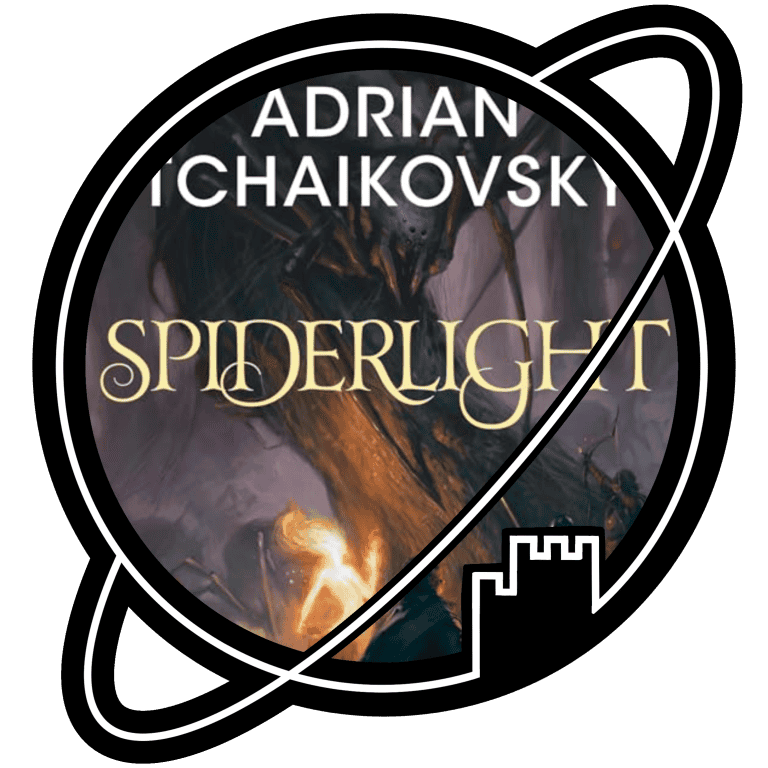

Listened to the audiobook with the author as the narrator – very well narrated!
I’ve recently read some of Tchaikovsky’s sci-fi books, so when my audiobook app recommended a fantasy novel with his name on the cover, I was curious to see how he would hold up in another niche of the speculative genre.
(And also, this one also had spiders – which makes you wonder if Tchaikovsky was practicing for Children of Time…)
Spiderlight is a rare sight in the high fantasy landscape: a relatively short, self-contained fantasy book. It helps that it feels like it has a different objective from most fantasy out there.
Where many fantasy books are as much exercises in imagination and worldbuilding as they are narratives, Spiderlight is very lean. It borrows heavily from the ‘standard’ D&D high fantasy world, offering a comfortable exposition-light read for readers with more experience in the genre.
The world of Spiderlight never quite comes to life in the same way that other fantasy worlds do, but that leaves more room to focus on the interpersonal relationships between the members of the party and playing with the expectations of the reader.
Which brings us to what Spiderlight is really about: it feels like Spiderlight consciously sets up the tropes to subvert them, taking slightly unexpected turns without the book turning into outright satire.
I will not claim that Spiderlight is particularly ground-breaking; perhaps the tropes that the ‘standard’ high fantasy D&D-world is built on are so well-worn that even their subversions have become common place.
But Spiderlight does the subversions well. It presents a nice philosophical take on ‘othering’ persons who are not like you, and presents the outsider’s view by including such an ‘other’ as one of the point of view-characters.
Don’t get me wrong, Spiderlight is not high literature, but the commentary without pretention is at the very least more conscious of the dogmatic good-versus-evil than the average high fantasy world.
Overall, Tchaikovsky wrote an eminently readable, nicely paced and well structured high fantasy book, that is comfortable in its set up but also brings enough subversion to the table to feel refreshing.
Tagged:
See also:
- Novel written by Leigh Bardugo
- Published on June 5, 2012
- Part one of the Shadow and Bone trilogy
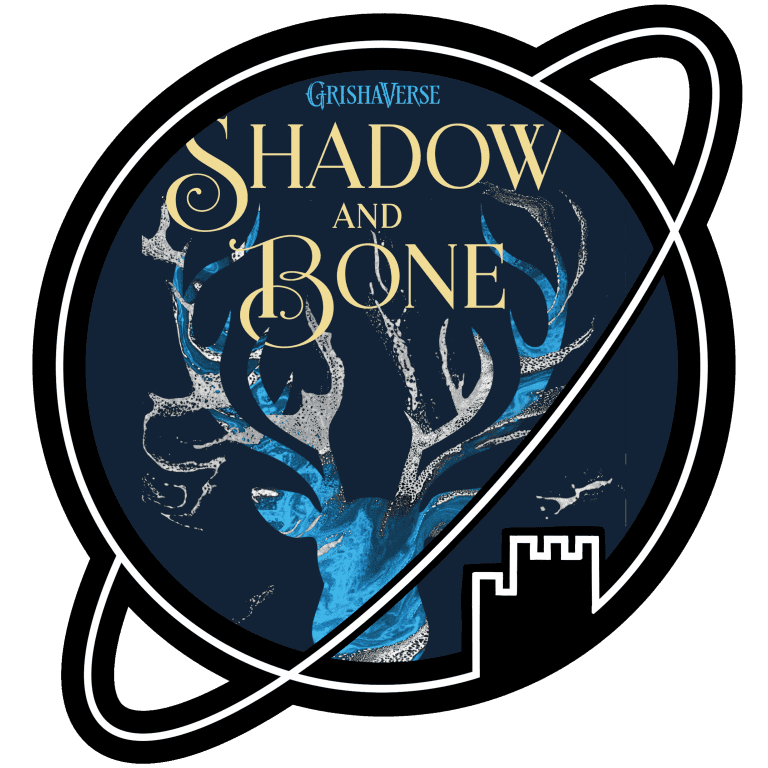

I watched Shadow and Bone on Netflix when it came out and I wasn’t super impressed. As I stated in my review, though, I would happily read the book at some point to see if I liked it more than the show. To be really honest, I wasn’t actually hugely excited about the prospect of reading Shadow and Bone. I was mostly just open to the possibility.
It wasn’t until I found another book by Leigh Bardugo, Ninth House, at the thrift store, that I realised she’s a very good author. Two years later, I finally found Shadow and Bone at the very same store for 1,50 euros. As the second season of the show had just come out, I decided to move it to the very top of to to-read list.
I’ll admit I rather enjoyed Shadow and Bone. Because I’d watched the show I knew what to expect. I might have enjoyed it less if I hadn’t.
Like the show, the book is pretty predictable YA fantasy. The pacing is super fast, much like the show. I think the story could definitely have benefited from 100 more pages, just to give us some more time to get to know the characters and get attached to them. I didn’t feel hugely connected to any of the leads, despite also having seen the show. Alina’s pretty funny, though. Overall, the pacing wasn’t a big issue. Shadow and Bone was super easy to get through and an enjoyable read.
I’d definitely recommend the book to anyone who enjoyed the show, or anyone else who wants to read some very accessible YA fantasy.
- Novel written by Neil Gaiman
- Published on 30 September 2008
- Standalone
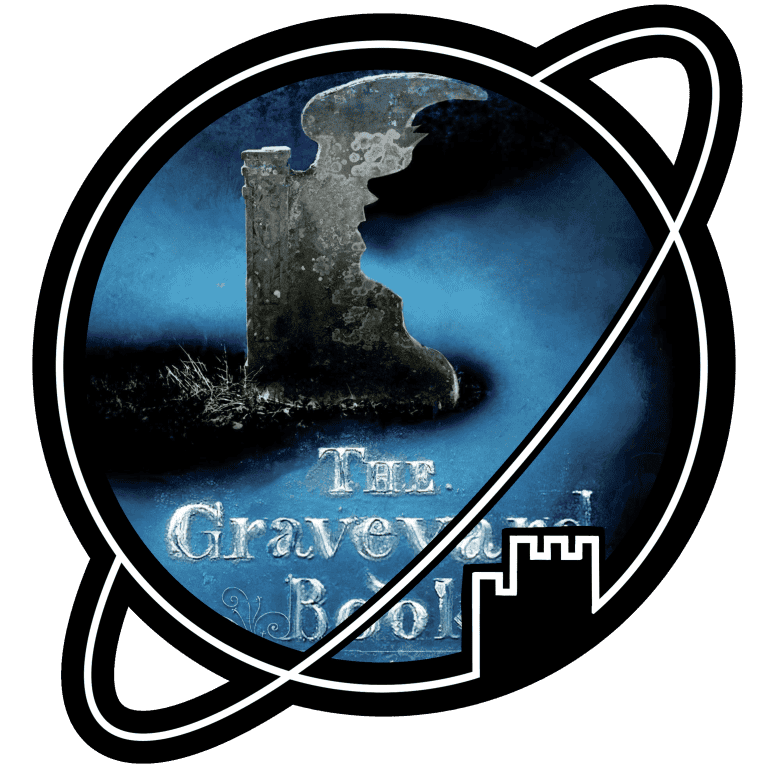

Listened to the full-cast audio book, which really added a lot to the experience. Great production!
I was in more of a low-energy mood and I didn’t feel like investing a lot in a book, so this week so I decided to put on something simple for younger readers. The Graveyard Book was a perfect fit.
I think a book like The Graveyard Book fits Gaiman’s style perfectly: I feel like he is the master of bringing children’s logic into a fantasy story, and The Graveyard Book might be the best example of it he’s every written.
The premise of this book – a child that grows up with the dead in a graveyard – is something that could require a lot of explaining to make work – but in Gaiman’s matter-of-fact style, all the pieces of the puzzle fall into place exactly because hardly any of it is ever explained. It works and feels logical like it would have if you were a kid, and to just go with that flow is a wonderful experience.
The Graveyard Book is very imaginative and whimsical, and at the same time it is mysterious and atmospheric. It has magic that relies on puns and reinterpretations of common phrases, it features children shouting down ancient ghosts – but the main character Nobody is also hunted by a mysterious gentleman looking to murder him.
Sometimes, those two sides of the story clash a little; going from one chapter to the next, The Graveyard Book might change from a wholesome tale on the interaction of the long dead and the living to a literal knife murderer chasing a child.
But in my experience the book was nicely balanced: with even parts of the sweet and the creepy, The Graveyard Book never became boring. It was just somewhat unpredictable in its mood. If those tone switches don’t sound like a bad thing, I think The Graveyard Book is a perfect read for a daring kid or a parent looking to read something to them that might also give them goose bumps.
And for readers like me, something like The Graveyard Book can be a great way to immerse yourself in a simple, well-told story without learning curve.
Tagged:
See also:

Review: The War of the Rohirrim – Kenji Kamiyama
200 years before the War of the Rings and the other events of the Lord of the Rings, Helm, king of Rohan, slew a Dunlending lord who sought a marriage between his son Wulf and Helm’s daughter Hera. In the ensuing war between the Rohirrim and the Dunlendings, not just Helm but also his daughter Hera will make a name for themselves that will go down in history.

Review: Annihilation – Jeff Vandermeer
A biologist is part of the 12th mission to discover the secrets of the mysterious Area X, an abandoned and poorly documented zone now overtaken by wilderness. From the moment she wakes up from the trance necessary to cross the mysterious border, the seemingly tranquil Area X feels oppressive. Tension between the mission member rise as they discover an unmapped feature: an underground structure with mysterious writing on the wall…

Review: Fallout – Amazon Prime
The bomb has gone off, but that doesn’t mean civilisation has to collapse. Deep underground, life goes on for a select few in the Vaults. 219 years later, Fallout follows Lucy Maclean, who has grown up with all the luxuries 1950’s life has to offer. After an incident in her vault, she ventures out into the wastes where she discovers what nuclear radiation has done to the people of America, in both mind and body.
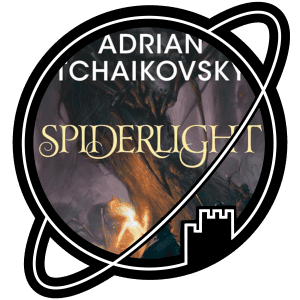
Review: Spiderlight – Adrian Tchaikovsky
A group of adventurers sets out to defeat the Dark Lord – meticulously following each of the steps foretold by the prophecy. The adventurers’ relationships are tested and their faith in the Light is challenged when their quest requires them to welcome a new member into their party. A creature of the Dark, transformed, bound to help them – but a creature of the Dark nonetheless. But if Darkness helps to fight Darkness, and the Light does not always shine so bright – where does that leave the quest, and what does the ever-lasting war between Light and Dark mean?
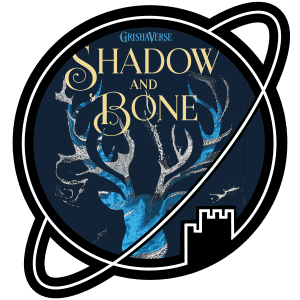
Review: Shadow and Bone – Leigh Bardugo
Alina is an orphan who serves in the Ravkan army as a cartographer. Together with her childhood friend Mal, she is sent on a ship through the Shadowfold, a rift populated by monsters. As the ship finds itself attacked by the terrifying creatures that live in the fold, Alina discovers she has a rare gift that makes her very powerful but also places a target on her back.
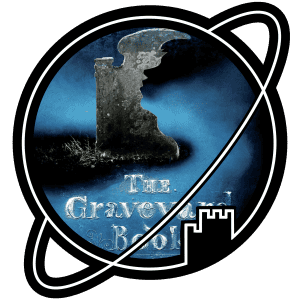
Review: The Graveyard Book – Neil Gaiman
Nobody Owens, Bod for short, orphaned as a toddler, grows up in a graveyard, raised by the dead in a cosy mausoleum. His vampire guardian brings him food, teaches him, and protects him from any threats from the world of the living. Though the world outside the graveyard is foreign and odd to Bod, as Bod grows up and makes friends, his urge to learn what is out there becomes difficult to resist. But he was not orphaned without motive, and he lives with the dead in the graveyard for a very good reason…









